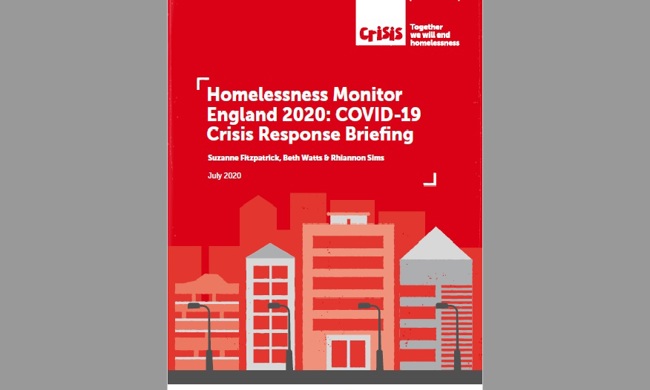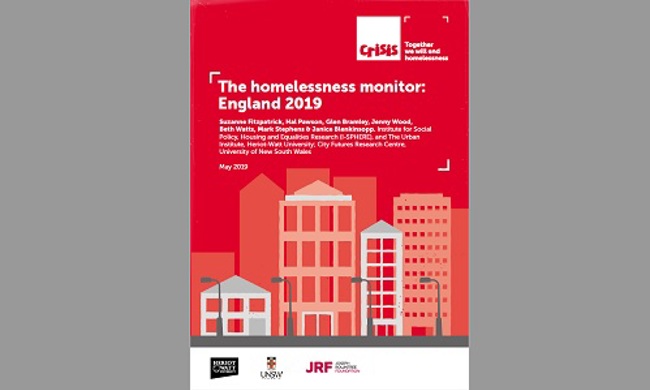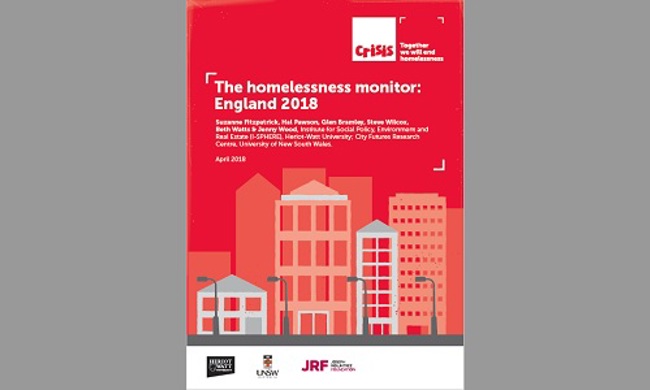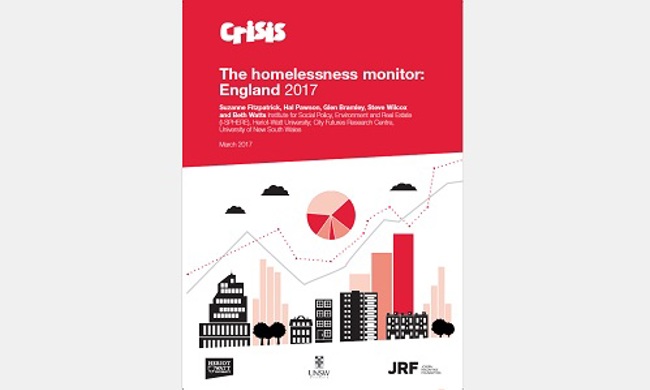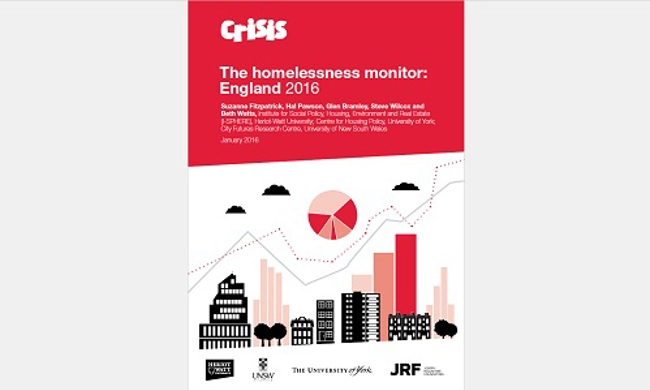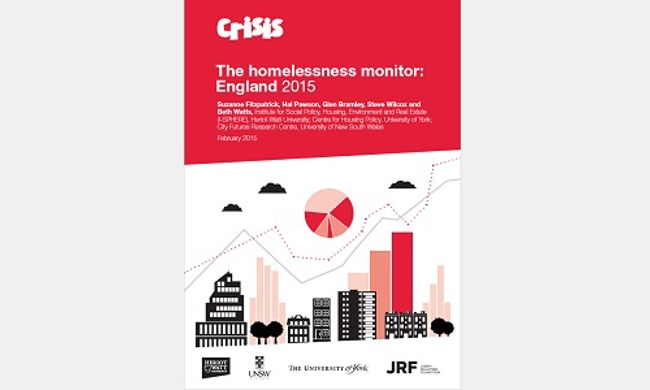Homelessness Monitor England 2020: COVID-19 Crisis Response Briefing
05.08.2020
COVID-19 has prompted a radical and rapid nationwide shift in responses to some of the most extreme forms of homelessness. With government financial support and guidance, local authorities have sought to get ‘Everyone In’ as rough sleeping in England has been reframed as an urgent public health issue, and emergency measures have sought to prevent other forms of homelessness as well. This Briefing reflects on the early lessons from the crisis response, and looks ahead to the exit strategy.
Key Findings
- Levels of infection seem very low amongst homeless people accommodated under the Everyone In initiative, indicating a relatively successful public health strategy with regards to this vulnerable population.
- The speed and clarity of the early central Government response on rapidly accommodating people sleeping rough, eliminating the use of communal shelters, enhancing welfare benefits, and halting evictions, was widely welcomed, with local authorities and homelessness charities also praised for rapidly rising to an unprecedented challenge.
- However, subsequent ‘mixed messages’ from central Government on the medium to longer-term response to populations accommodated under ‘Everyone In’, especially non-UK nationals ineligible for housing benefit, became a matter of acute concern amongst local authorities and their third sector partners. Highly ambivalent, and changing, signals from central Government about the application of the usual homelessness eligibility and entitlement criteria during the pandemic were identified as especially problematic.
- Whilst an increase in Local Housing Allowance (LHA) rates were warmly welcomed, many stakeholders noted that the continuance of the overall Benefit Cap severely compromised the positive benefit of this LHA enhancement for larger families in particular, especially those living in higher pressure parts of the country
- One striking point was the extent to which dormitory-style accommodation is still used in at least some parts of England. A decisive shift away from these communal forms of sleeping provision was a positive outcome sought by some of those we spoke to, as well as more broadly a direction of travel that encompassed less emphasis on hostels with shared facilities
- The (understandable) emphasis given to immediate crisis response during the COVID-19 pandemic has squeezed out prevention activity at many levels, and a ‘spike’ in family homelessness in particular is expected as the evictions ban and furlough schemes come to an end.
Reference
Fitzpatrick, S, Watts, B., & Simms, R. (2020) Homelessness Monitor England 2020: COVID-19 Crisis Response Briefing. London: Crisis.

